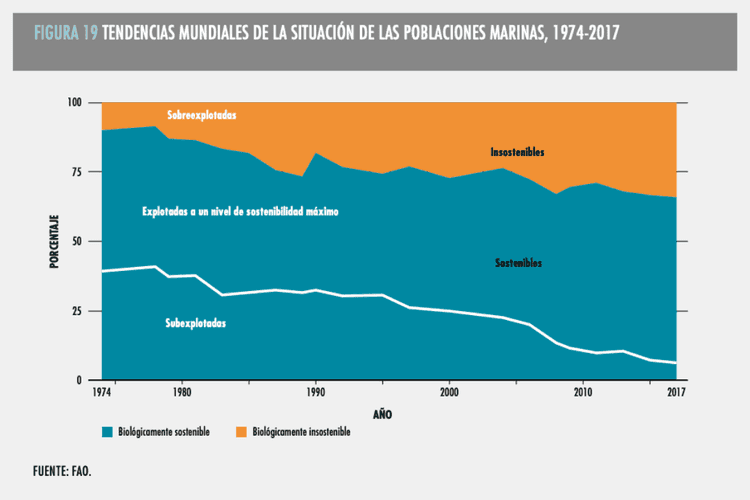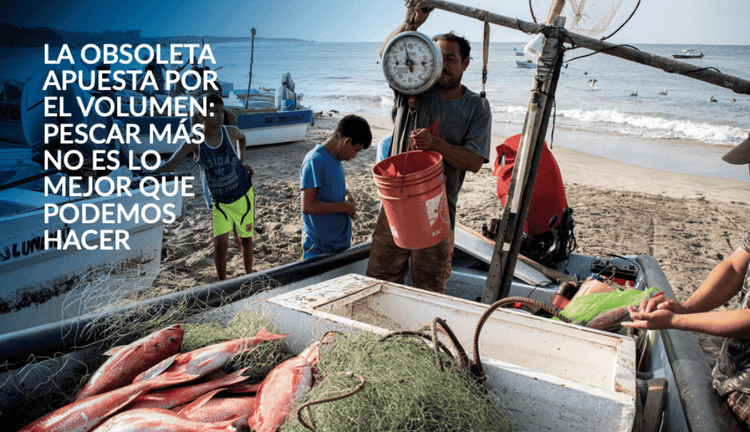In September, the sessions of the LXV legislature began, where environmental and primary sector initiatives wait for an opportunity. Mainly fishing, one of the lagging sectors.
The need is urgent in terms of sustainability. Activists and specialists from the environmental sector agree that in Mexico, fishing is an activity that is carried out blindly. Especially the illegal one, which is not registered, does not respect restrictions, has no permits, overexploits and plunders the sea.
“We estimate that in Mexico between 30% and 50% of total fishing comes from illegal fishing,” Mariana Aziz, director of personal transparency campaigns at Oceana, said in an interview.
Aziz explains that this “brings a lot of problems because we don't really know how much is being extracted, in what species, from which areas, if regulations are respected, closed periods, marine protected areas or fishing refuge areas”.
But so-called poaching is not the only pillar that generates problems such as the overexploitation of the seas. The lack of complete and transparent information; the lack of traceability to track the movement of a product from capture to consumption, and the failure of public policies are obstacles to protection and sustainability.
“The Mexican government recognizes that there are deteriorated fish species, however, it does not implement or execute actions for their recovery. The loss of species has serious environmental, economic and social consequences,” Oceana said in a statement in February.
On an international scene, biologically sustainable marine species declined by around 25% from 1974 to 2017. Overexploitation and unsustainability continue their trend, according to SOFIA 2020, a report by the United Nations Food and Agriculture Organization (FAO).
“We have a significant number of overexploited species. But there is a problem and that is that we cannot know how they are in full because there is no complete information. We are a country with opaque legislation where the availability of data and information is quite limited,” Aziz added.

Global trends on the situation of marine populations from the SOFIA 2020 report.
Source: FAO
Report and measure to solve
To solve overfishing, it is not enough just to know what. We also think about why, how and, mainly, how much.
“If you can't measure a problem, you can't solve it. In this way, it is not possible to protect, restore and recover the populations and ecosystems of species that are overexploited, deteriorated or in the process of collapsing,” reported the first Oceana Fisheries Audit.
Audit 2.0, published in 2021, reinforces the need for comprehensive fisheries management to advance solutions. The first step for Mexico could take place in the National Fisheries Charter.
This is the document prepared and updated by the National Institute of Fisheries and Aquaculture (Inapesca) that collects information on where, when and how much fishing is allowed without altering the ecological balance. The objective is to be an instrument that provides truthful information on data such as the species exploited, the population status, the fishing gear used, among others.
The problem: The National Fisheries Charter is not up to date.
“It's not something that is done year after year as required by law. We saw that 51% of the fishing records in the National Charter have not been updated for more than eight years [...] All this tells us about a rather opaque fishing landscape. We can't really know what is happening out there, what are the overexploited species, what measures they are taking to reverse these trends and that has us working in the dark,” said Mariana Aziz.
In addition, only 4% have verifiable sources of information, while 96% have no public data available for evaluation. Since its creation in 2000, it has been updated five times.
If we don't know where half of the fish that come out of the water come from, we don't know if the problems in the sea are bigger than calculated, Aziz adds.
“The successes achieved in some countries and regions have not been enough to reverse the global trend of overexploited populations. This uneven progress highlights the urgent need to reproduce and readjust policies and measures that have been successful in view of the realities and needs of specific fisheries,” said Qu Dongyou, Director General of FAO, in the SOFIA 2020 report. 
Source: Oceana Audit 2.0
The commitment to traceability
The Mexican government continues to make decisions for fisheries management without sufficient and up-to-date information, Oceana said. According to the figures, more than 300,000 families of fishermen and sea workers are at risk because there are no sustainable management plans.
Despite the lack of political action, several organizations such as Oceana propose an action plan, where one of the biggest bets is traceability, which guarantees the monitoring of the process of a product from capture to consumption. It allows legal fishing, therefore, fishing that registers, respects restrictions and has permits.
“There is also a lack of compliance with regulations and for that we need to implement tools that allow us to encourage compliance such as traceability. It's a tool to close the door in the market to all illegal fishing,” explained Mariana Aziz.
As director of transparency campaigns, Aziz reaffirms the need to have elements in public policy that provide order, but also the tools that monitor compliance with that law. An advance to stop the plunder of the seas.



Comentarios (0)